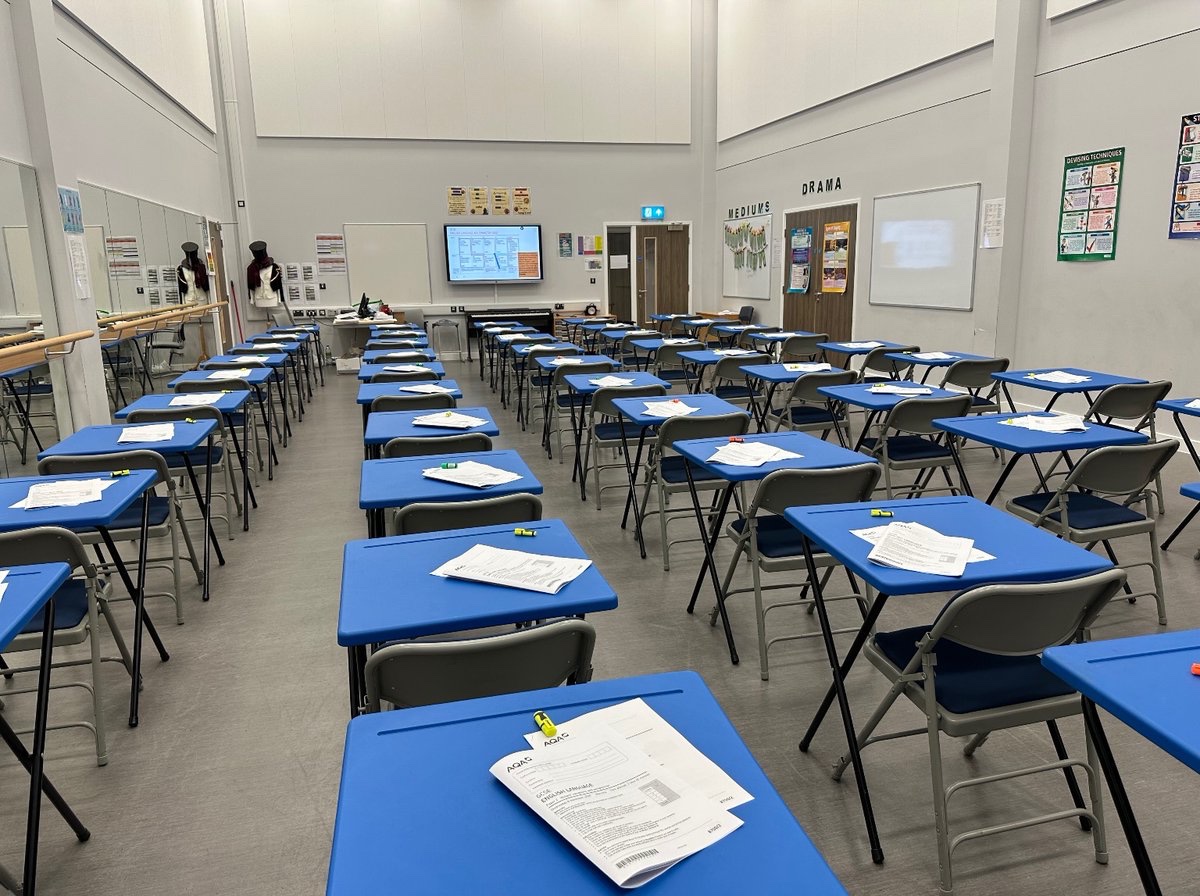Marking Books
"it is better that the teacher and the student engage in meaningful dialogue either orally or by the student reflecting the value of the dialogue in the improvement of their evidenced learning."
Below you can find the entire contents of the 'Marking books' section from The Orange Book
The pdf version is downloadable from the bottom of this page
Aims
The marking policy has two main aims
- to provide timely, effective, supportive and impactful feedback to students to improve their learning and
- to protect teachers from undue workload pressures caused by onerous marking schedules
Rationale
According to The Sutton Trust and the Education Endowment Fund among others, the evidence suggests that good marking should;
- encourage student reflection, self-regulation and ownership of learning,
- occur as close as possible to the efforts of the student,
- be part of a collaborative dialogue about learning,
- be specific to the current learning,
- generate an opportunity for improvement and
- form part of the pedagogical model of learning
Workload
The evidence and the rationale above suggest that marking is best done with students present rather than after the lesson is finished. The academy does not expect teachers to spend undue time in marking after lesson times, in PPA or after academy hours. The academy actively discourages teachers from taking marking home. This policy does not require teachers to do any of the above except in marking formal assessments or mock examinations a few times during the year.
In class practice – what is important and what is not
As part of the pedagogical model, teachers are expected to embed into their in class practice routines for entering into collaborative dialogue and feedback with students about their learning, usually verbally. What is important is that students make rapid progress due to the timely intervention, encouragement and support of the teacher. It is not important for teachers to write large quantities of feedback in student books. Instead it is better that the teacher and the student engage in meaningful dialogue either orally or by the student reflecting the value of the dialogue in the improvement of their evidenced learning.
Training and development
Teachers are expected to develop their practice in order to follow this policy with increasing effectiveness, particularly in ensuring that all students benefit from the learning dialogue. The academy provides training in how to follow this policy.
Tiered approach
At Harris Academy Riverside, we take a four tiered approach as follows;
- Marking of the prep quiz during the calm start
- Marking of SPAG during the calm start
- Live collaborative learning
- Formal summative marking
Marking of the prep quiz – what is important and what is not
Teachers should mark the prep quiz (in purple pen) during the ‘calm start’ while students are attempting the ‘do now.’ Prep quizzes are designed such that marking is very straight forward. What is important is that prep quiz marks have integrity.
Marking the prep quiz during the calm start allows the teacher to assess the quality of prep done by the class and therefore guides the teacher in deciding to what extent to consolidate the core knowledge covered by the prep. Teachers may decide to go over the prep answers after marking and after the ‘do now’ but this is a teaching decision not a marking requirement.
(this section also applies to the ‘fluency quiz’ and ‘do now quiz’ in Maths and similar recall quizzes in other subjects)
Marking of SPAG – what is important and what is not
Teachers should mark (in purple pen) for SPAG during the ‘calm start’ while students are attempting the ‘do now.’ Teachers should intervene in the event of incorrect spelling or poor grammar or where there are good opportunities to improve grammar or sentence structure, for example. In doing so, what is important is that students improve the SPAG immediately (in green pen) and maintain their understanding of the improvements in future work. What is not important is to correct every spelling or grammatical error such that students are discouraged or overly disturbed in their flow.
In terms of spelling teachers should particularly look out for misspelling of tier 3 vocabulary.
Teachers may take this opportunity to ensure that students have sufficient scaffolding to make good progress in the ‘do now,’ for example, by suggesting sentence starters or relevant discourse markers.
(this section also applies to the use of tier 3 vocabulary in Maths and other subjects where extended writing ‘do nows’ may not apply.)
Live collaborative learning
Teacher should live mark the work of students during the consolidation task by giving individual verbal feedback, support, encouragement and scaffolding or stretch. The teacher may choose to mark in the margin that verbal feedback has been given with a ‘VF’ notation (in purple pen.) What is not important is that teachers write feedback in the student book. What is important is that the student engages in the collaborative learning with the teacher and improves their evidenced learning (in green pen before reverting to black pen.)
Teachers should encourage positive peer on peer feedback and collaborative learning by reading out work from time to time which satisfies the intended outcomes. Teachers will need to balance the impact of this with the need to maintain the productive, introspective environment of the consolidation task
Coverage and targeting
All students deserve the benefit of the teacher’s support and encouragement. However, teachers will need to take account particularly of
- the needs of particularly vulnerable students such as those with SEND needs or barriers to learning ,
- the potential of higher ability students and
- the need to maintain coverage which is fair to all students.
Teacher may not reach all students each lesson but should ensure that all students are supported over a short term sequence of learning. What is important is that all students manifest the ongoing and developing benefits intended by this policy consistently over time. What is not important is that all books are ‘marked’ each lesson.
Formal summative assessment
From time to time, usually twice each academic year, the academy holds formal assessments such as examination weeks. These assessments should be formally marked and question level analyses produced for response and future planning. Feedback to students on how to do better should be provided and students should be given the opportunity to try such assessments again after feedback and modelling. To ensure that the marking process does not drag and that feedback is timely and relevant to the students, marking turnaround times are generally quite short. Clearly such marking should not be undertaken during lesson time.
Teachers may also choose to set formal higher stakes assessments from time to time which require formal marking against a mark scheme. The academy does not expect such assessments to be undertaken to the extent that marking creates undue workload.
Evidence of learning dialogue in exercise books
The learning dialogue generated by this policy should be evident in exercise books. Students generally write in black pen (except in the ‘do now’ where students write in blue pen.) Teachers mark or comment in purple pen and students respond to collaboration with the teacher in green pen. Therefore the learning dialogue should be evident.




















